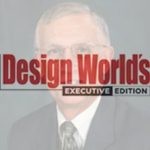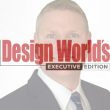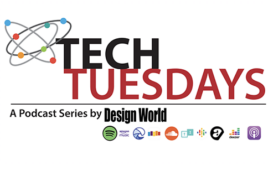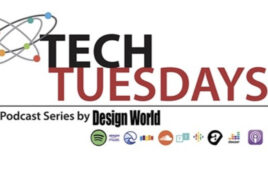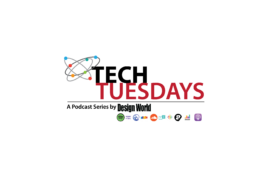[A lightly edited transcript follows …]
DW: Tell us about how Orange Seal came to be.
GK: Orange Seal is a subsidiary of Alaja Hydrolic, a full service supplier down in Trinidad, that’s actually run by my Dad. The name of that company is Hydraulic Components Ltd., and they’ve been in operation for more years than I’ve been alive. And, my Dad saw an opportunity to capitalize on a little bit of market share coming up the Caribbean island chain. And just really through circumstance and a little bit of good luck actually, found the opportunity to open a branch of the company here.
What he did was he essentially gave me the opportunity to take it, and run with it by not just making it a branch of Hydrolic Components, but making it into a subsidiary company, which is now Orange Seal.
 The good thing about that was is that, instead of just being limited to saying well all right fine, we’re just gonna do exactly the same thing that Hydrolic Components is doing, he allowed us to have a little bit more flexibility and to investigate areas where we could diversify, and find new ways to bring some type of value to the fluid power industry, using the experience that Hydrolic Components had already set up.
The good thing about that was is that, instead of just being limited to saying well all right fine, we’re just gonna do exactly the same thing that Hydrolic Components is doing, he allowed us to have a little bit more flexibility and to investigate areas where we could diversify, and find new ways to bring some type of value to the fluid power industry, using the experience that Hydrolic Components had already set up.
DW: Can you explain a little bit, just maybe taking a step back. Explain to us how the fluid power world in the Caribbean differs, if at all?
GK: So, to be quite honest it’s actually not that much different. With the exception of course, they are no major types of manufacturers or distributors, because the Caribbean Islands are very small.
A lot of what they get in terms of equipment in fact, all of what they get in terms of equipment, spare parts, things like that are all imported. Trinidad especially does a lot of import in some areas like Europe. They get a lot of their heavy equipment through that way. A lot their bucket lists, and a lot of their utility equipment, and knuckle boom cranes, and things like that usually come out of Europe.
Honestly it’s not really that much different in terms of the engineering aspect of it. It’s actually almost the same like here. We don’t have a ton of schools that promote fluid power education or anything like that. So a lot of the engineering students that come into it and a lot of the labor force are usually people who have some type of experience with engineering, or mechanical engineering.
They just kind of fall into a pattern because those companies like Hydrolic Components are the ones that look for that type of talent. Honestly, there really isn’t that much of a huge difference between the two.
DW: How does a broker and distributor differ in your mind?
GK: Essentially, distributors will usually go out to their suppliers, and they will distribute their products to their suppliers. Sometimes, they may have exclusivity to certain suppliers based on region, based on technical expertise, inventory, that type of thing.
As a broker, we’re able to actually find all of the individual suppliers, and we are not tied to one specific distributor in order to source our parts. That is essentially out of necessity being a very young company in the industry. We decided to try and add value to it by not just being one, or tied to one particular distributor or supplier.
But, allowing end-users and end-customers to actually get the full breath of the fluid power industry, by doing all of that leg work for them. By going out to individual manufacturers, maybe to verify part numbers for them, to verify serial numbers for them. Getting that information, talking to suppliers, getting that feedback, providing the quotations and then going back to the customer and giving them that best availability, and that best option.
DW: So, if you’re using a broker, would you say that’s sort of like you’re outsourcing a company’s purchasing department?
GK: Yes and no. So, essentially sometimes the purchasing department might exist in order to fulfill a specific need. Let’s say for instance, it’s a service company and they are restocking their inventory. They will have purchasers who will be responsible for finding best availability, or best cost for large volumes of inventory as needed. Where we kind of differ from that is, especially when it comes to specialty parts. Parts that might be a little bit harder to find manufactured parts. The one of items that people sometimes have a lot of trouble finding.
That’s where we might differ from them a little bit like that.
DW: So Gordon, based on your business growth thus far, where are you seeing your biggest opportunities?
GK: Oh. Well, definitely I think, training and the labor force is going to be key for us.
It’s something that we’re already investigating, and it’s something that we’re looking heavily into, and devoting a lot of our time into research for that. Especially to getting young people invested in the fluid power industry and helping to spread that type of education, that is gonna be a big focus for us. So, that has definitely been one of the areas that we’ve identified as saying all right, this is a good opportunity for us in this market.
And I think somewhere else where we may be able to bring a lot of value is, using technology to help improve on the supply chain aspect of it by really understanding it a lot better, and really finding the gaps where things might not be as efficient as they could be. And then, capitalizing on that to help bring a lot more value to end-users of fluid power equipment.
DW: Well, what about specific industries segments … do you see a lot of growth in off-shore oil? Is it in construction, mobile equipment? Is it in in-plant stuff, is there anything that you see as particularly a big focus for you in those segments?
GK: Not specifically within the individual segments. I think honestly just looking at where the industry’s heading as a whole, and trying to find ways to add value to certain different facets of it. That might be where the biggest value for us is. Because, I think there are certain status quo’s that exist within-
Those particular segments that are gonna be particularly tough for a new company to kind of jump in on unless you have substantial amounts of expertise within it. So, because we’re still a very young company, we haven’t actually been able to dive head first into a lot of these individual segments.
Instead, we’re trying to focus on a little niche in between, and then work our way upwards from there by gaining the expertise and building that type of trust with the individuals in the fluid power industry.
DW: Okay. Well, tell us maybe what is your outlook for the remainder of this year, and then for 2019 for Orange Seal?
GK: Financially, I think it’s pretty promising, well as for 2019.
The reason why that is, is because of the fact that we’ve actually begun to see a certain amount of return on our investment in terms of marketing efforts that we’ve begun to put forward there.
And a lot of the data that we’ve been collecting so far has been able to point us in the right direction, and we’re beginning to see a lot more leads come in, we’re beginning to see more conversion strategies emerging. So, I think all in all, it’s very promising.
DW: Great. Wonderful to hear. And then lastly, what are your customers pain points that you’re finding out? Are there specific things that they’re really asking you for?
GK: So far, not that they’ve been specifically asking for, but we have actually asked them. We’ve actually gone out, and we’ve asked them what frustrates you? What are your biggest gripes about the work that you have to do right now? And the number one issue that everyone has said has been the labor force.
It’s been the absolute number one thing that everyone complains about. Second to that usually is, parts availability.
But the number one gripe that they have is definitely the labor force, and how much it’s dwindling lately, and especially trained technicians.
You may also like:
Filed Under: PODCASTS

